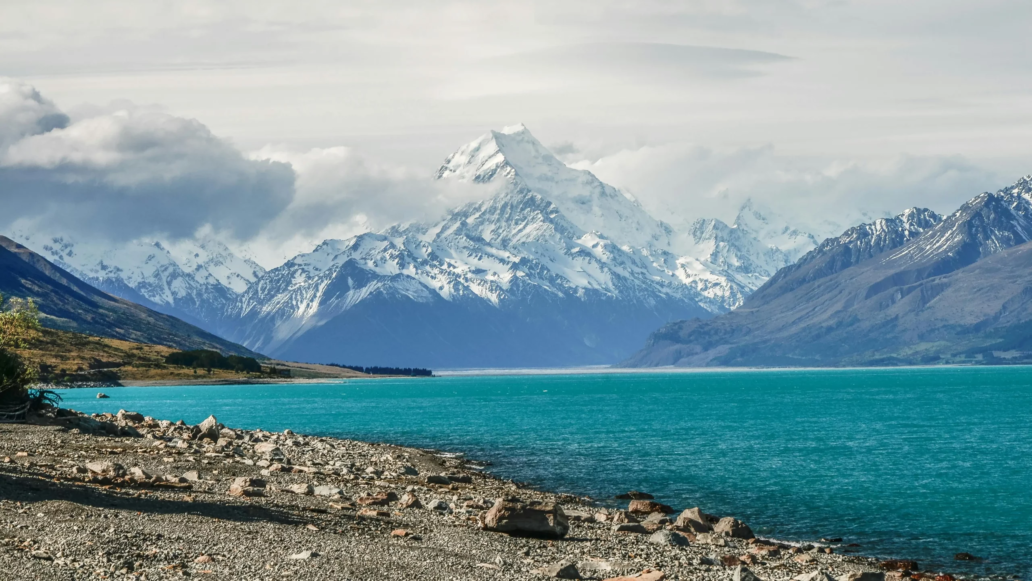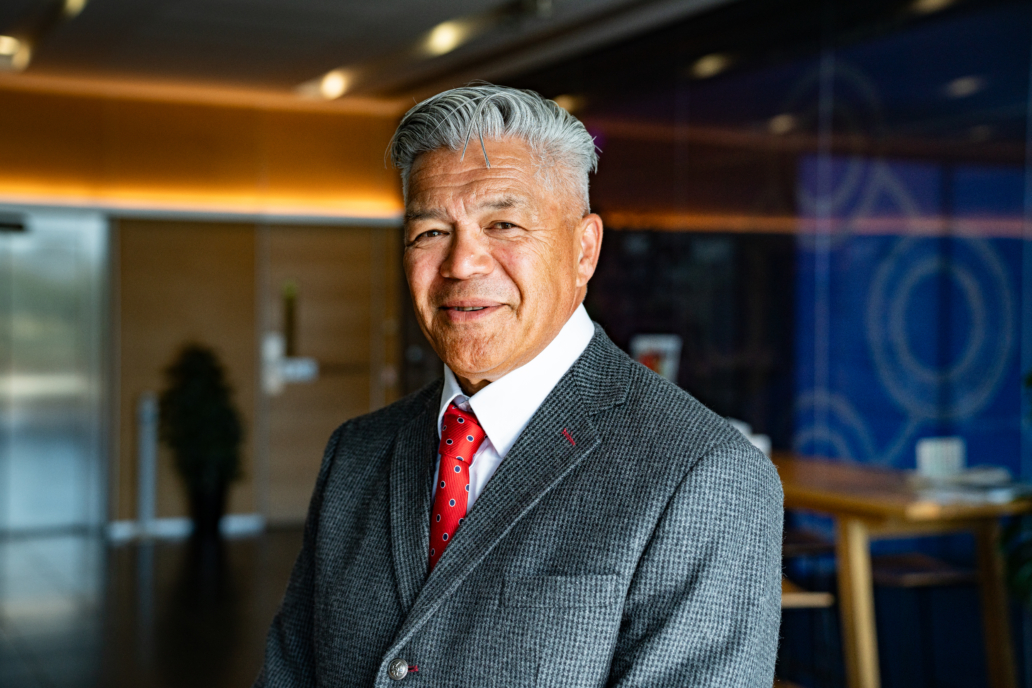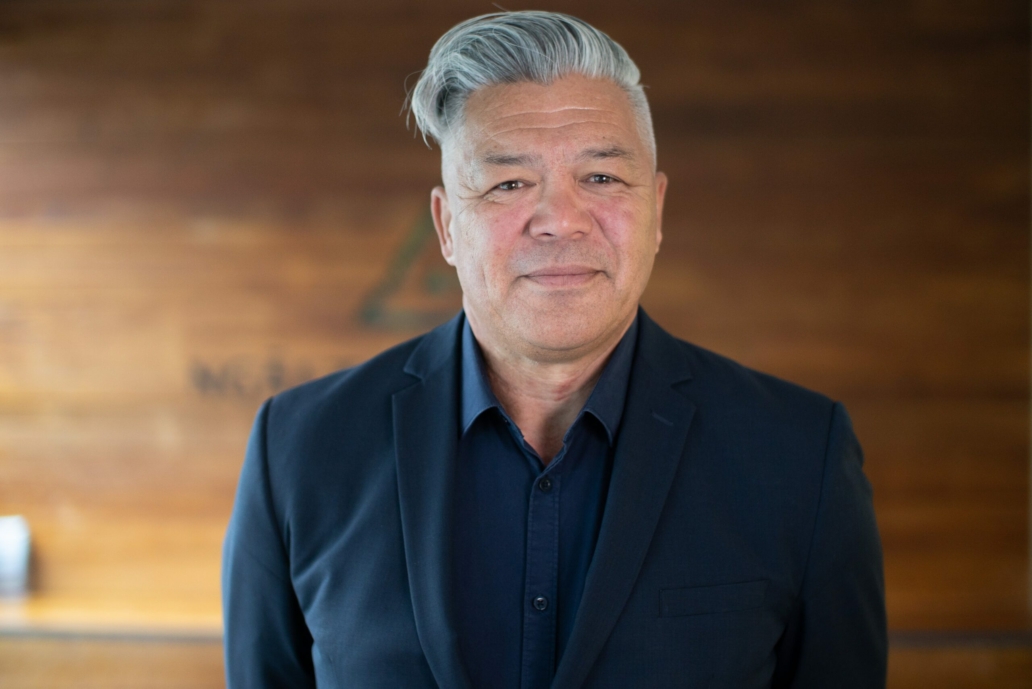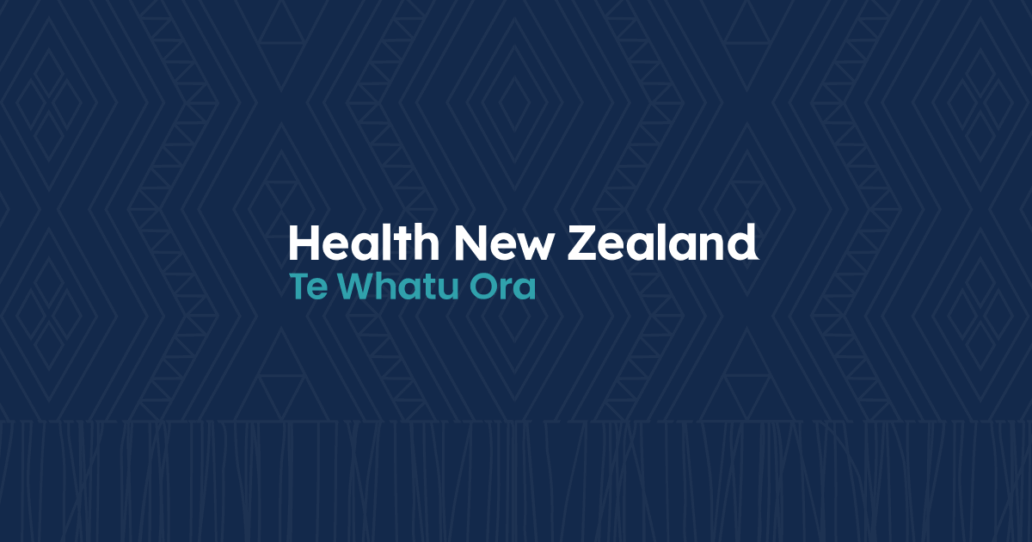Whānau Ora Kaitūwhana service providers selected
Te Tauraki has selected the providers that will deliver Whānau Ora Kaitūwhana services across Te Waipounamu from 1 January 2026.
Following a comprehensive Request for Proposals (RFP) process, 26 organisations have been selected to deliver 97 Kaitūwhana roles strategically placed across the region to support whānau.
"We're directing our resources to ensure maximum impact for whānau across Te Waipounamu," says Taone O'Regan, Head of Funding, Monitoring and Performance.
The allocation model, which is guided by Te Puni Kōkiri, accounts for Māori population distribution and multiple indices of social deprivation. It enables Te Tauraki and Whānau Ora service providers to focus their mahi where it will make a significant difference.
What this means for whānau
“Whānau remain at the centre of everything we do,” says Taone.
“For those currently engaged with Whānau Ora services, we will endeavour to make the transition smooth.”
About Whānau Ora Kaitūwhana services
Kaitūwhana (Navigators) work alongside whānau to help them identify their goals and navigate pathways to wellbeing. They connect whānau with the services, support, and resources that strengthen their wellbeing and help achieve outcomes that matter to them.
How providers were selected
Service providers were selected through a rigorous RFP process led by independent procurement specialists.
- 56 proposals were received from organisations across Te Waipounamu
- 97 Kaitūwhana positions were available
- Independent evaluation against clear criteria including capability, sustainability, data management, health and safety, and service quality
- 26 organisations were selected based on their ability to deliver quality services for whānau
Together with the provider network, Te Tauraki will continue to strengthen Whānau Ora across Te Waipounamu, ensuring whānau have access to the right support, in the right place, at the right time.
Understanding Kaitūwhana: New term, timeless concept
You may have noticed Te Tauraki using the term Kaitūwhana rather than Navigator when referring to Whānau Ora service provision. This change reflects our commissioning approach, Whiria te Tuamaka, which connects us to the wisdom of our tīpuna.
When our Ngāi Tahu tīpuna faced rivers in flood across Te Waipounamu, they created tūwhana – poles crafted to enable safe crossings. Kaitūwhana were those who crafted, positioned, and used these essential tools, working collectively to ensure everyone reached safe ground.
This captures the role we envision for this specific Whānau Ora role. Kaitūwhana act as connectors and advocates for whānau, helping them navigate pathways in health, housing, education, employment, and wellbeing. They reinforce links to hapū and whenua.
The role is pivotal in connecting whānau with their communities, and to awhi and tautoko them to improve their overall circumstances.
Kaitūwhana work alongside whānau, helping them navigate the flood conditions of contemporary challenges – economic pressures, system failures, and societal obstacles. They don't carry whānau across; they provide the tools, support, and collective strength that enable whānau to navigate their own crossing.
Just as the original kaitūwhana understood that mahi kātahi (collective action) made the crossing possible, today's Kaitūwhana recognise that whānau have their own skills and strengths. With the right support and tools, whānau can navigate external challenges successfully.
Chair's Update: Building momentum and collective strength
As we move towards the final months of the year, Te Tauraki continues to strengthen its position to advance Ngāi Tahu health and wellbeing aspirations through our dual functions as an Iwi Māori Partnership Board (IMPB) and Whānau Ora Commissioning Agency.
Whānau Ora commissioning decisions confirmed
Following a comprehensive evaluation process, Te Tauraki has confirmed service providers for Whānau Ora Kaitūwhana services across Te Waipounamu. The providers will deliver 97 Kaitūwhana positions from 1 January 2026.
We received 56 applications. The successful ones demonstrated strong whānau-centred approaches, robust data capability, and sustainable practices. Contract negotiations are now well advanced, with services set to commence on 1 January 2026.
Our allocation decisions were guided by Te Puni Kōkiri modelling, which identifies areas with the highest deprivation levels and proportionally high Māori populations. This ensures our investment reaches whānau with the greatest needs. Transition planning is under way to maintain continuity for whānau currently receiving support.
You may have noticed we now use the term Kaitūwhana rather than Navigator when referring to Whānau Ora roles. This change reflects our commissioning approach, Whiria te Tuamaka, which connects us to the wisdom of our tīpuna.
When our ancestors faced rivers in flood across Te Waipounamu, they created tūwhana –poles crafted to enable safe crossings. The kaitūwhana were those who crafted, positioned, and used these essential tools, working collectively to ensure everyone reached safe ground.
This captures the role we envision for this specific Whānau Ora role. Kaitūwhana acts as a connector and advocate for whānau, helping them navigate pathways in health, housing, education, employment, and wellbeing. They reinforce links to hapū and whenua.
Just as the original kaitūwhana understood that mahi kātahi (collective action) made the crossing possible, today's Kaitūwhana recognise that whānau have their own skills and strengths. With the right support and tools, whānau can navigate external challenges successfully.
Regional Investment Committee taking shape
Progress is underway in establishing our Regional Investment Committee (RIC), which will advise Te Tauraki on community investment opportunities, budget preparation, and strategic planning. We have called for Expressions of Interest from community leaders with deep regional understanding, commitment to Te Tiriti principles, and experience in community development, health, or social services. Click here for more information.
Looking ahead
As we approach 2026, our focus remains steadfast: supporting smooth transitions for Whānau Ora service providers, strengthening regional investment capability, and ensuring whānau remain at the heart of everything we do. This year has been about laying the groundwork and foundations we believe will lead to meaningful improvements in the health and wellbeing of whānau Māori across Te Waipounamu.
Want to join our regional investment committee?
Te Tauraki is seeking expressions of interest from dedicated community leaders to join our Whānau Ora Regional Investment Committee (RIC) for Region: Te Waipounamu (including Wharekauri/Rēkohu).
The purpose of this RIC is to provide community-grounded advice to guide the decision-making and investments of Te Tauraki. Members will bring community and regional understanding to support Te Tauraki as it invests to enhance the wellbeing of whānau.
Appointments will be based on multiple considerations including alignment with the Whānau Ora model, regional understanding, and advocacy for Te Tiriti o Waitangi principles.
The opportunity
Since 1 July 2025, Te Tauraki has operated as a commissioning agency for Whānau Ora services. To ensure our investment decisions are grounded in local knowledge and community insight, we are establishing a Regional Investment Committee.
The role
RIC members will provide community-grounded advice to Te Tauraki on:
- Distribution frameworks for Other Whānau Initiatives funding
- Budget preparation and strategic planning documents
- Investment activities that improve whānau Māori wellbeing
What we're looking for
Qualities
-
Distribution frameworks for Other Whānau Initiatives funding
-
Budget preparation and strategic planning documents
-
Investment activities that improve whānau Māori wellbeing
Desirable experience or expertise
-
Strong understanding of your region and deep knowledge of local communities
-
Focus on historically underserved communities
-
Alignment with the Whānau Ora approach
-
Understanding and advocacy for Te Tiriti o Waitangi principles
-
A servant leadership mindset
Commitment
- Understanding of data analysis and evidence-based decision making
- Ability to interpret and apply data to inform strategic investment priorities
- Understanding of social return on investment approaches
Remuneration
- Members: $950 per meeting
- Any necessary out-of-pocket expenses reimbursed
Conflicts of interest
Due to our commissioning function, strict conflict of interest rules apply. Members cannot be involved with service providers that are, or may be, engaged by Te Tauraki.
Next step
If you are passionate about improving whānau wellbeing and meet the criteria above, we would love to hear from you.
To express your interest
- Contact: whanau.ora@tetauraki.co.nz
- Include: A brief outline of your relevant experience and connection to your community
- Deadline: 14 November 2025
Questions?
Please reach out to our team at whanau.ora@tetauraki.co.nz for more information about this exciting opportunity to shape Whānau Ora investment in Te Waipounamu.
Chair's Update: Building capability while advocating for whānau wellbeing
Te Tauraki continues to strengthen its foundational capabilities as we strive to deliver for whānau Māori across Te Waipounamu. Our dual mandate as both Iwi Māori Partnership Board and Whānau Ora commissioning agency positions us uniquely to drive transformative change amid and despite ongoing challenges from regressive government policies.
Whānau Ora commissioning
Our Whānau Ora commissioning work has reached a significant milestone. We are now evaluating the tenders received through the Request for Proposals (RFP) process. The quality is impressive and there will be some difficult decisions to make.
Te Tauraki will establish 97 Kaitūwhana (previously known as Navigator) positions with initial two-and-a-half-year contracts. This represents a substantial investment in community-led support systems designed to enhance whānau wellbeing outcomes.
We are prioritising providers who demonstrate aptitude across the Whānau Ora outcomes framework.
Organisational growth and data sovereignty
The expansion of Te Tauraki indicates growing influence and responsibilities. We are recruiting across key roles including two Kaihautū Tuarua and a Head of Data, Insights & Impact. This growth demonstrates the effective execution of our strategy despite the challenging legislative environment we are navigating.
A significant advancement in our data sovereignty commitment is the implementation of Eightwire's secure platform for Whānau Ora reporting. This system ensures whānau information is protected while simplifying reporting processes.
Strengthening regional partnerships
Our hauora wānanga at Puketeraki Marae brought together 21 leads from 16 Papatipu Rūnanga, reinforcing regional relationships and identifying collaborative opportunities. These connections remain vital as we work collectively to prioritise kaupapa within each rohe.
As our tīpuna created tūwhana to navigate challenging crossings, we continue building the right tools and opportunities to support whānau while maintaining our commitment to Māori health and wellbeing sovereignty.
Te Tauraki releases Māori-led health monitoring framework
Te Tauraki has published its 2025 Monitoring Report, establishing a kaupapa Māori framework designed to drive meaningful health system transformation for whānau Māori across the Ngāi Tahu takiwā.
The report represents a significant milestone in Māori health monitoring, combining robust data analysis with whānau voice to create what Te Tauraki describes as "a new kind of accountability, one grounded in values, community voice, and a full cycle of care."
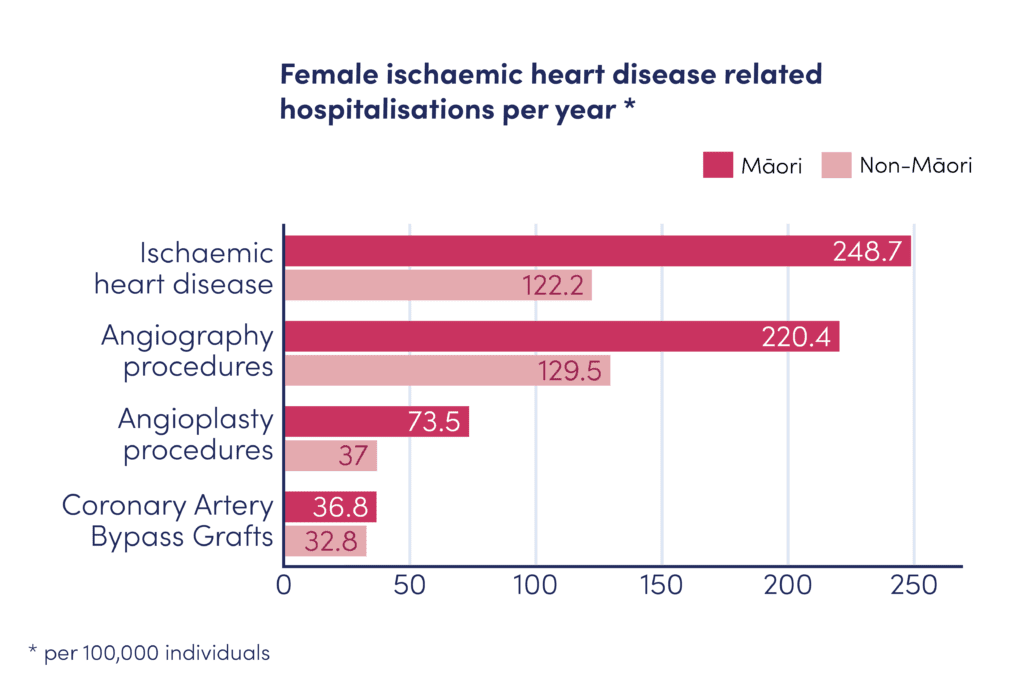
Te Tauraki Board member Dr Maira Patu says the monitoring is not just a technical exercise, but one that reflects whakapapa, whenua, and wellbeing.
She says the framework applies Māori-centred methodologies across the complete health journey, from prevention to outcomes. It establishes clear baselines and indicators designed to surface disparities and support change.
While the report documents ongoing health disparities – including higher cancer mortality rates (66.1 per 100,000 people for Māori versus 52.8 for non-Māori) and cardiovascular disease impacts. Te Tauraki positions these findings as a foundation for targeted action rather than simply documenting problems.
Click here for the full Monitoring Report
Te Tauraki notes particular concern for wāhine Māori, who experience elevated rates across multiple health areas but often receive limited attention in mainstream health messaging.
The agency has navigated significant challenges in accessing current health data but says Dr Patu: “Rather than allowing these barriers to halt progress, we have developed alternative data partnerships with agencies including Statistics New Zealand and ACC while advocating for improved access.”
She says timely, transparent data is vital, not just to track progress, but to support culturally grounded solutions.
“We are committed to enhancing monitoring systems, deepening whānau engagement, and advocating for fair and equitable distribution of resources” Dr Patu says.
"Our vision is clear. We want a future in which Māori live longer, healthier lives. To achieve that, we need a system that understands, reflects, and responds to Māori needs."

Critical disparities revealed
- Cancer mortality: Māori death rate of 66.1 people? per 100,000 compared to 52.8 for non-Māori, with Canterbury showing even greater disparities
- Cardiovascular disease: Tāne Māori face 2.4 times higher early death rates from circulatory system disease; Wāhine Māori 2.6 times higher than non-Māori?
- Heart failure hospitalisations: Māori hospitalised at 212 per 100,000 (males) and 141.7 per 100,000 (females) compared to 88.1 and 58.2 respectively for non-Māori
- Mental health: Māori hospitalisation rate of 758.5 per 100,000 compared to 508.8 for non-Māori
- Cancer screening: Consistently lower participation across bowel (62% vs 77%), cervical (67% vs 72%), and breast cancer (69% vs 77%) screening compared to non-Māori?
- Immunisation: Only 80% of Tamariki Māori fully immunised at 24 months compared to 89% non-Māori

Our tamariki deserve better
By Taone O'Regan
The recent revelation that 12 babies have died over eight years from congenital syphilis represents a damning indictment of our health system's failures.
These are not statistics; these are preventable tragedies that should never have occurred in New Zealand in 2025.
The data paints a devastating picture. Since 2017, there have been 42 cases of congenital syphilis nationwide, with eight stillbirths and four neonatal deaths. What makes this crisis even more unconscionable is its disproportionate impact on Māori – 73 percent of cases are whānau Māori.
While regions across the North Island and parts of the central regions have implemented routine third-trimester screening for syphilis, Te Waipounamu continues to lag behind. Our pregnant women and their babies are being denied the same level of protection available elsewhere in the country.
This geographical inequality is not just unfair, it's dangerous. Syphilis can be contracted during pregnancy, even after a negative first-trimester test. Without routine third-trimester screening, we are leaving a critical window of vulnerability wide open, gambling with the lives of our most precious taonga.
The cruel irony is that congenital syphilis is entirely preventable. A simple blood test and treatment with antibiotics can save lives. Sexual Wellbeing Aotearoa have been advocating for third trimester screening as best practice, to enable timely treatment, and to ensure it is available to every whānau.
While third-trimester screening is urgent, we must also address the systemic failures that led to this crisis:
- Access barriers: Many cases occurred in women with no or late antenatal care, highlighting the need for more accessible, culturally responsive services
- Healthcare workforce shortages: The shortage of GPs and midwives, particularly in rural areas, creates dangerous gaps in care
- Cultural responsiveness: Eurocentric health services are failing Māori and Pacific whānau
Te Tauraki calls for immediate action:
- Urgent implementation of routine third-trimester syphilis screening for all pregnant women in Te Waipounamu
- Ring-fenced funding to ensure no region is left without this essential protection
- Investment in accessible, culturally responsive antenatal services that meet the needs of all communities
- Expansion of the healthcare workforce, particularly midwives and sexual health specialists in underserved areas
The government talks about improving health outcomes and addressing inequities. Here is a clear, actionable opportunity to save lives. No more studies, no more delays, no more excuses.
Our babies deserve better. Our whānau deserve better. Te Waipounamu deserves the same level of protection as the rest of the country.
Chair's Update: Defending Māori health sovereignty
As we move through August, Te Tauraki is marking significant achievements and facing some stern challenges.
While we continue building our Whānau Ora commissioning capability, we are simultaneously defending fundamental principles of Māori health governance against legislative threats that could undermine decades of progress.
Standing firm against regressive reform
The Healthy Futures (Pae Ora) Amendment Bill represents more than disruptive reform – it constitutes a direct assault on proven mechanisms for Māori health governance. Te Tauraki has responded decisively, submitting two joint responses in opposition: one alongside Te Rūnanga o Ngāi Tahu, and another with all 15 Iwi Māori Partnership Boards (IMPBs).
This Bill would reduce IMPBs from genuine partners in health system design to mere advisory voices, effectively silencing powerful advocates for communities experiencing the greatest health inequities. It centralises Māori health input under direct ministerial control, eroding the independence and accountability to Māori communities that we have fought to establish.
Our opposition is grounded in evidence. The proposed changes would repeal provisions requiring Te Whatu Ora to engage directly with IMPBs, eliminate independent monitoring powers, and remove requirements for cultural safety and mātauranga Māori integration. This represents a return to failed DHB-era structures where Māori input was peripheral, under-resourced, and lacked influence – the very structures the Waitangi Tribunal identified as contributing to persistent health inequities.
Commissioning progress amid uncertainty
Despite this legislative turbulence, our Whānau Ora commissioning function continues to advance. We have released our comprehensive Request for Proposal (RFP) for long-term contracts. The response has been encouraging, with provider workshops attracting strong attendance demonstrating genuine sector engagement.
Te Puni Kōkiri (TPK) has confirmed we are meeting the expectations of Whānau Ora Minister Tama Potaka, particularly regarding greater service reach. Our first annual hui with TPK validated that we are on track with our data-driven, strategic approach towards delivering results. We are now establishing our Regional Investment Committees and determining approaches for Other Whānau Initiatives Funding.
Data sovereignty and monitoring excellence
Our commitment to evidence-based advocacy has been demonstrated through the completion of our 2025 Monitoring Report. This work establishes a kaupapa Māori framework designed to drive meaningful health system transformation, combining robust data analysis with whānau voice to create accountability grounded in values, community voice, and comprehensive care.
The monitoring reveals persistent disparities that demand action: Māori cancer mortality rates of 66.1 per 100,000 compared to 52.8 for non-Māori, cardiovascular disease rates 2.4-2.6 times higher for Māori, and consistently lower screening participation across all programmes. Rather than simply documenting problems, we position these findings as foundations for targeted, transformative action.
We have navigated significant barriers in accessing current health data, with formal requests to Te Whatu Ora submitted in January remaining unfulfilled. Rather than allowing these obstacles to halt progress, we have developed alternative data partnerships with Statistics New Zealand and ACC while advocating for improved access.
Strengthening strategic relationships
Our stakeholder engagement continues expanding strategically. We have secured representation on the GPNZ Primary Care Dashboard Steering Committee and maintain active participation in the Te Waipounamu PHO CEO Collective forum and Te Waipounamu Data Platform. These relationships position us to influence primary care development across Te Waipounamu while ensuring our communities' voices are heard in system design.
The relationship with Te Rūnanga o Ngāi Tahu remains foundational, with regular hui between leadership establishing productive momentum. Our presentation to the Iwi Leaders Pou Tangata has strengthened understanding of our dual roles as both IMPB and commissioning agency.
Piki te ora, piki te kaha, piki te maramatanga
Rakihia Tau, Chair, Te Tauraki
Media release: Bill threatens Māori voice and health outcomes
Te Tauraki has strongly opposed the Pae Ora (Healthy Futures) Amendment Bill, warning it will silenceindigenous voices.
In a submission to Parliament's Health Committee, Te Tauraki – alongside Te Rūnanga o Ngāi Tahu – condemned the Bill for seeking to dismantle proven mechanisms for Māori health governance.
In a separate submission, Te Tauraki is one of 15 Iwi Māori Partnership Boards (IMPB) collectively opposing key provisions of the legislation.
"This Bill represents not just disruptive reform. It would reduce IMPBs from genuine partners in health system design to mere advisory voices, effectively silencing a powerful voice for the very communities experiencing the greatest health inequities," Te Tauraki Chair Rakihia Tau said.
As both an IMPB with statutory functions under the Pae Ora Act and a commissioning agency for Whānau Ora, Te Tauraki operates at the intersection of policy and service delivery, uniquely positioned to advocate for transformative health outcomes for whānau Māori across Te Waipounamu.
Rakihia Tau says the Bill would fundamentally restructure Māori participation in health governance, downgrading IMPBs from direct partners with Health New Zealand to advisory bodies that merely provide "community insights" to a Minister-appointed Hauora Māori Advisory Committee.
Te Tauraki argues this centralises Māori health input under direct ministerial control, eroding independence and accountability to Māori communities.
"Te Tauraki has a mandate to advance Ngāi Tahu health and wellbeing aspirations for all Māori within our takiwā," Rakihia Tau says.
"This Bill would strip away our legislated roles in local health system design, priority setting, and monitoring – roles that provide a significant statutory conduit for Māori voice and accountability."
The 1998 Ngāi Tahu Claims Settlement Act promised "a new age of cooperation," Rakihia Tau says.
“However, this Bill was developed without genuine engagement with Treaty partners and within a rushed timeframe.”
The collective IMPB submission highlights how the proposed changes would repeal provisions requiring Health New Zealand to engage directly with IMPBs, eliminate independent monitoring powers, and remove requirements for cultural safety and mātauranga Māori integration.
"Evidence demonstrates that kaupapa Māori services improve engagement, access, and outcomes for Māori," the collective submission stated.
The submissions call for the Bill to be withdrawn entirely, arguing it constitutes a return to failed DHB-era structures where Māori input was peripheral, under-resourced, and lacked influence – structures the Waitangi Tribunal's Health Services and Outcomes Inquiry specifically identified as contributing to persistent health inequities.
"We remain committed to working with the Crown to design enduring, Tiriti-based health governance that respects rangatiratanga, embeds Iwi leadership in decision-making, and delivers for all communities in Aotearoa," Rakihia Tau says.
"But this Bill moves us backwards, not forwards."
Māori health champion takes on regional role
Te Tauraki is delighted to welcome Dr Pete Watson to his new role as Executive Regional Director for Te Waipounamu at Te Whatu Ora.
Dr Watson was formally welcomed with a mihi whakatau on August 4 at the Manawa Campus in Christchurch. Te Whatu Ora, iwi, hauora partners, and Iwi Māori Partnership were in attendance.
Te Tauraki board director Suzanne Pitama expressed her enthusiasm about Dr Watson's appointment.
"Te Tauraki was honoured to attend the mihi whakatau and hear Peter’s inspiring vision. His commitment to valuing mana whenua and the respect he holds among Māori colleagues from Counties Manukau set a strong foundation for the journey ahead."
Dr Watson brings more than 25 years of experience as a health leader and specialist medical practitioner to the role. As a Paediatrician and Youth Health Specialist, he holds Fellowship of the Royal Australian College of Medical Administrators (FRACMA) and has demonstrated his commitment to working in partnership with iwi, hapū and whānau to improve health outcomes for all.
His career highlights include serving as the inaugural National Clinical Lead (Medical) for Te Whatu Ora from June 2022 to June 2023 and previously holding positions as acting CEO and Chief Medical Officer at Counties Manukau Health.
As Executive Regional Director, Dr Watson will focus on developing effective clinical partnerships, delivering against national health targets including the Electives Boost, implementing improved access to primary care, and ensuring health services are high-quality, safe and sustainable.
His track record demonstrates his ability to tackle complex health sector challenges. He was instrumental in the national response to the Whakaari White Island disaster and played a key clinical leadership role in New Zealand's Covid-19 pandemic response, including the establishment of managed isolation and quarantine facilities.
Earlier in his career, Dr Watson made significant contributions to youth health as the initial Principal Investigator for Youth2000, the first national school survey of 10,000 students in 2001. He developed specialist expertise in Adolescent Medicine and Youth Health, holding academic, clinical and leadership roles at the University of Auckland School of Medicine and Middlemore Hospital
Te Tauraki recognises Dr Watson as an authentic, transparent leader who honours Te Tiriti o Waitangi. His extensive experience working in partnership with Māori communities and his proven advocacy for Māori health outcomes align closely with the vision and mission of Te Tauraki.
Te Tauraki looks forward to working alongside Dr Watson in his new role to advance health equity and improve outcomes for whānau Māori in Te Waipounamu.



